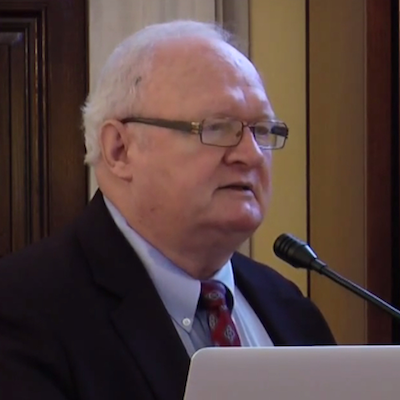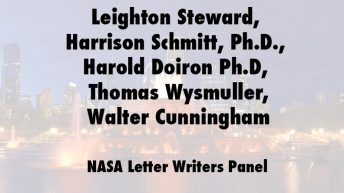Hal Doiron
 Hal Doiron passed away on April 28, 2020.
Hal Doiron passed away on April 28, 2020.
Doiron was the retired vice president for engineering of InDyne, Inc. As a young physicist, he joined NASA-Houston in 1963 and developed the Apollo Lunar Module landing dynamics software used to guide landing gear design for toppling stability and energy absorption performance, to develop landing techniques, and to support landing site selection. He performed docking dynamics studies for the Skylab Program and led the Space Shuttle team that successfully eliminated unstable vibration coupling of the shuttle structural dynamics and rocket engine thrust oscillations.
After his 16-year NASA career, Doiron spent nine years at Reed Tool Co. developing advanced energy exploration drilling technology as manager of technical services, manager of systems engineering, and director of the Diamond Products Division. While a senior manager at McDonnell Douglas Space Systems, his team computed the onorbit vibration response of the International Space Station to dynamic events such as spacecraft docking, berthing, re-boost, and rocket plume impingement to define design limit loads and structural strength requirements. In retirement, Doiron was a consultant to NASA and commercial rocket developers.




